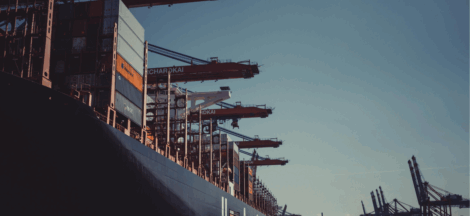MUMBAI: The Trades Receivables e-Discounting Systems or TReDs platform, launched in 2016, to facilitate credit to medium, small and micro enterprises (MSME) has seen a slow offtake. Currently, its outstanding as a percentage of overall MSME outstanding has barely increased to 2.66% in FY25 from 0.58% in FY22, according to data from M1xchange, one of the four entities that operate on the TReDs platform. The other three being Receivables Exchange of India (RXIL), Invoicemart and C2FO.
Experts said that one of the main challenges has been the lack of enthusiasm amid public sector lenders and state government authorities in this platform due to delay in invoices approval and challenges in recovery of assets in some cases, market participants said.
“I believe that if PSU participation takes place, then the volume which is currently somewhere around Rs 3 lakh crore should increase to Rs 6 lakh crore, which is a 100% jump,” Sundeep Mohindru, Founder & Promoter, M1xchange said.
Senthil Kumar SGM & Head – Credit, Collection & Recovery at South Indian Bank said that while the bank’s overall experience has been good, there are legal challenges on how the exposure gets treated, when the borrowing entity goes into a insolvency resolution process.
“While regular working capital exposures get to be treated as part of financial creditors, TReDs exposures are being made part of operational creditor. We are seeking legal advice to address this anomaly,” Kumar added.
TReDS platform is an institutional mechanism set up for financing of trade receivables of MSMEs from corporates and other buyers including Government Departments and Public Sector Undertakings through multiple financiers.
According to Reserve Bank of India (RBI) data, currently 135,093 MSME sellers and 7,937 buyers have registered on the platform as on March 31. There are 218 banks and NBFCs which act as financiers on the platform. On a year-on-year basis, the units financed during the month of March by TReDS platforms increased by 61% to Rs 28,985.83 crore.
However, most companies are not transacting on the platform even though the RBI has mandated corporates with turnovers above Rs 250 crore to register on TReDS. “While 8,000 corporates were onboarded on the platform, only 2,500 are active,” Mohindru said.
From the perspective of MSMEs, the struggle lies with the registration process due to limited digital literacy and documentation requirements. While the TReDS platform represents a considerable improvement over the manual processes existing in the factoring services market earlier, it needs to be simplified further to encourage large scale adoption of the platform, according to a report made by RXIL.
Non-MSME suppliers are currently not allowed on the TReDS platform, the report said. “This deters many corporate buyers that have both MSME and non MSME suppliers from participating on the platform. These restrictions imply that such corporates would need to have two separate systems for payments to MSME and non MSME suppliers,” the report said.
Another challenge is that while the platform’s auctioning mechanism benefits the buyer and sellers on the platform along with banks, smaller financiers with limited liquidity, who have relatively high funding costs are often unable to compete with the banks and have experienced a reduction in their margins.
One solution to the problem could be the integration of TReDs with other digital infrastructures such as government e-Marketplace, Goods and Services Tax Network, e-invoicing and account aggregator frameworks could further streamline the process, reduce frauds and lower transaction costs. “(The integration of GeM and TReDs) would really help. But we need to look at the proportion of PSU purchases that happen through GeM. Fortunately, it is increasing, but it is still a very small portion..,” Prashant Girbane, Director General of Mahratta Chamber of Commerce and Industries said.
“Regulatory support to encourage mandatory participation of large buyers and government enterprises, and perhaps even incentive schemes for timely payments, can significantly boost the ecosystem’s health and ensure MSMEs receive their dues efficiently,” RXIL said.
Basant Kaur, Country Head at C2FO said that the system is still heavily buyer-dependent, meaning that suppliers can’t always initiate discounting without waiting for invoice acceptancea so, introducing auto-acceptance protocols or second-window models could address this issue.
In 2023, apart from MSME sellers, buyers and financiers, RBI allowed insurance companies to participate as the “fourth participant” in TReDS. “The participation of insurance companies has not yet started. We are hoping that in 2025, they will go live. That would give an additional boost to the platform,” Mohindru said.
Source: The Financial Express




 EU Seeks Easier Quality Control Certification Under Trade Deal
EU Seeks Easier Quality Control Certification Under Trade Deal 